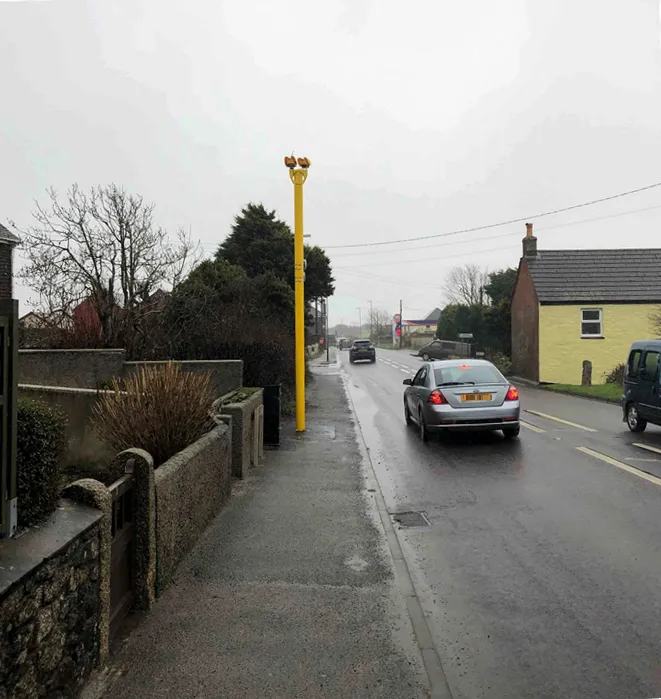The City of Cape Town has installed an average speed over distance, or average speed enforcement, system on Nelson Mandela Boulevard in its latest attempt to address speeding and promote road safety.
The system, supplied by local company Syntell, consists of three sets of cameras that will cover all incoming and outgoing lanes and will become operational later this month, measuring the speed of all vehicles travelling in both directions between the bottom of Nelson Mandela Boulevard and the N2 and M3.
October 6, 2014
Read time: 2 mins
The City of Cape Town has installed an average speed over distance, or average speed enforcement, system on Nelson Mandela Boulevard in its latest attempt to address speeding and promote road safety.
The system, supplied by local company Syntell, consists of three sets of cameras that will cover all incoming and outgoing lanes and will become operational later this month, measuring the speed of all vehicles travelling in both directions between the bottom of Nelson Mandela Boulevard and the N2 and M3.
“Too often, motorists travel at speeds in excess of the legal limit in this area and we hope that the introduction of the system will result in greater compliance with the law – in line with our commitment to create a safe city,” said the City’s Mayoral Committee Member for Safety and Security, Alderman J.P. Smith.
“Speeding continues to be one of the top causes of collisions and fatalities and we continue to record thousands of speeding offences. In August alone, Cape Town Traffic Services recorded 113,000 speeding offences.”
The system, supplied by local company Syntell, consists of three sets of cameras that will cover all incoming and outgoing lanes and will become operational later this month, measuring the speed of all vehicles travelling in both directions between the bottom of Nelson Mandela Boulevard and the N2 and M3.
“Too often, motorists travel at speeds in excess of the legal limit in this area and we hope that the introduction of the system will result in greater compliance with the law – in line with our commitment to create a safe city,” said the City’s Mayoral Committee Member for Safety and Security, Alderman J.P. Smith.
“Speeding continues to be one of the top causes of collisions and fatalities and we continue to record thousands of speeding offences. In August alone, Cape Town Traffic Services recorded 113,000 speeding offences.”







